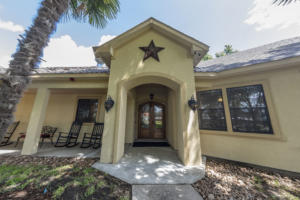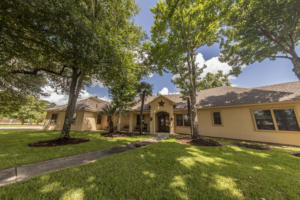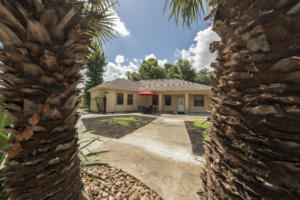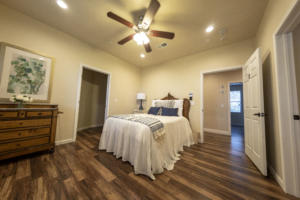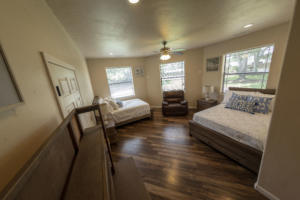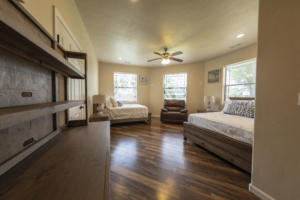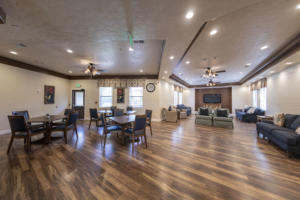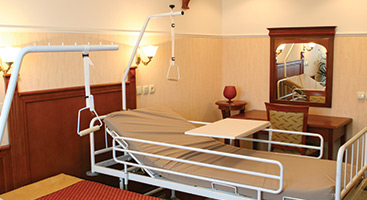Memory Care
Choosing Memory Care Is Not Easy
What is Memory Care?
What is the difference between Alzheimer's disease and Dementia?
Dementia and Alzheimer’s disease often are confused in common understanding and conversation, but they are two distinct disorders that are diagnosed and treated differently. Dementia is an umbrella term for a chronic and persistent set of symptoms that impact communication, memory and thinking. There are multiple types of Dementia, including:
- Vascular dementia
- Parkinson’s disease
- Frontotemporal dementia
- Dementia with Lewy Bodies (DLB)
- Huntington’s disease
- Mixed dementia
- Alzheimer’s disease
- Creutzfeldt-Jakob
The cognitive decline as you age with dementia often makes it increasingly difficult to perform daily functions. Alzheimer’s disease is a specific type of dementia that manifests in symptoms such as confusion and impaired speech, memory, and thought. Unlike some other forms of dementia, Alzheimer’s is a degenerative disease that sadly, is not currently reversible or curable. Alzheimer’s disease is the cause of approximately 50 to 70 percent of dementia cases, according to the U.S. Centers for Disease Control. Parkinson’s disease, Huntington’s disease and Creutzfeldt-Jakob disease are other common causes of dementia.
There are some early signs of dementia that include, but are not limited to:
- Memory loss
- Declining motor function
- Disorganization
- Disorientation
- Agitation
- Cognitive decline
How does care for Alzheimer’s and dementia residents differ?
How much does it cost for memory care every month?
The national average cost of memory care for a single resident varies greatly by care facility. The costs for specialized memory care are generally higher than you would pay at a regular assisted living facility, even if the memory care unit is at such a facility. Some residents within memory care communities pay as much as $7,000 per month or as little as $1,500 per month, depending on the services offered. In general, the increased cost for memory patients is due to the 24-hour supervised care your loved one receives.
At Valiente Senior Living, we are committed to helping ensure your loved one gets the care that they need without putting a financial strain on the family. Contact us today to schedule a tour of our senior living facility, and discuss the level of care needed and what options there are for financing.
Is Alzheimer’s or dementia care covered by insurance, Medicaid or Medicare?
Faced with the high price of memory care, you may need to seek ways to cover at least some of the costs, although the unfortunate reality is a majority of funds come out-of-pocket from caregivers and patients themselves.
Medicare routinely covers many prescription medications and other medical items and treatments for patients 65 or older with dementia or Alzheimer’s disease. Medicare does not cover most services provided through long-term care though, such as home health aides or custodial long-term assisted living. You can supplement your Medicare coverage with Medigap, a private insurance policy. The more expensive Medigap policies may cover additional memory care items.
Once a patient has sufficiently low income or their assets are depleted to about $2,000 or less, they may qualify for Medicaid to cover long-term nursing home care, adult day care or assisted living. Each state’s welfare agency administers Medicaid, so eligibility and benefits vary from state to state. If your loved one is eligible for Supplemental Security Income, they should automatically be eligible for Medicaid.
Whether your loved one’s long-term memory care is covered by private insurance depends on the provider and the policyholder’s specific plan, as well as what insurance is accepted by various memory-care facilities.
The different options for financing for a memory care facility can be confusing and overwhelming. Give us a call today, and let our trained staff at Valiente Senior Living help steer you in obtaining the most financial help possible for placing your loved one in our memory care home.
What type of care do residents receive at Valiente Senior Living?
At Valiente Senior Living, we are dedicated to providing only the best for our residents. You can depend on 24-hour supervised staffing care and personal assistance for your loved one, from daily meals and social programs to health and medication management. The staff working in our memory care unit and facilities are specially trained to serve those with Alzheimer’s and dementia, and provide them with the highest quality of life. Because of our outstanding reputation in the senior living community, it is not uncommon for other assisted living facilities in the area to refer residents to Valiente Senior Living when they are unable to provide the level of memory care required.
Because of the nature of dementia and Alzheimer’s disease, our special care unit implements specific measures within the environment, including easy-to-navigate hallways, color-coding and secured exits, to ensure the residents’ safety and reduce their anxiety. Providing your parent this type of comfortable environment often encourages them to strive for greater independence and social interaction.
If you are struggling with the decision about whether it is time to have your loved one reside in a lovingly supervised, structured, 24-hour memory care facility, contact us today. We would love to have you and your loved one come tour our facility, and answer any questions you have about what to expect with cognitive issues associated with Alzheimer’s disease and dementia.
What People Say About Us
Our Testimonials
Valiente Senior Living - Magnolia, TX
